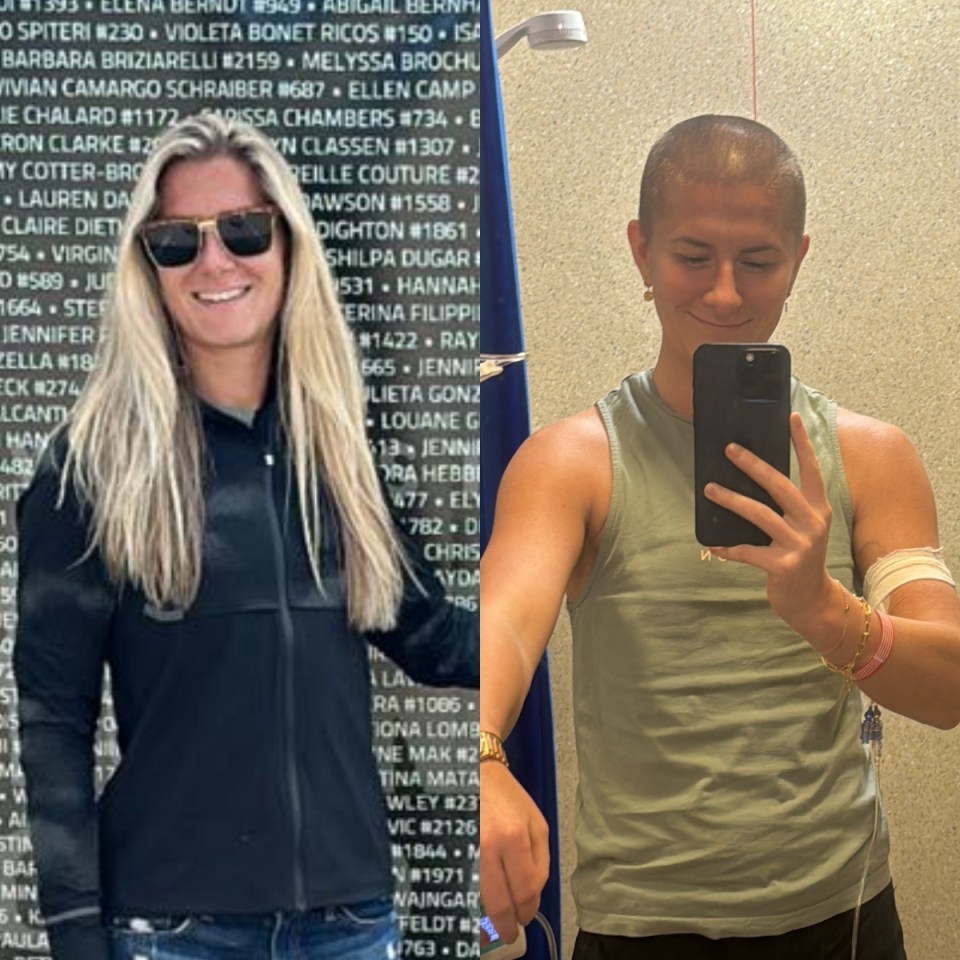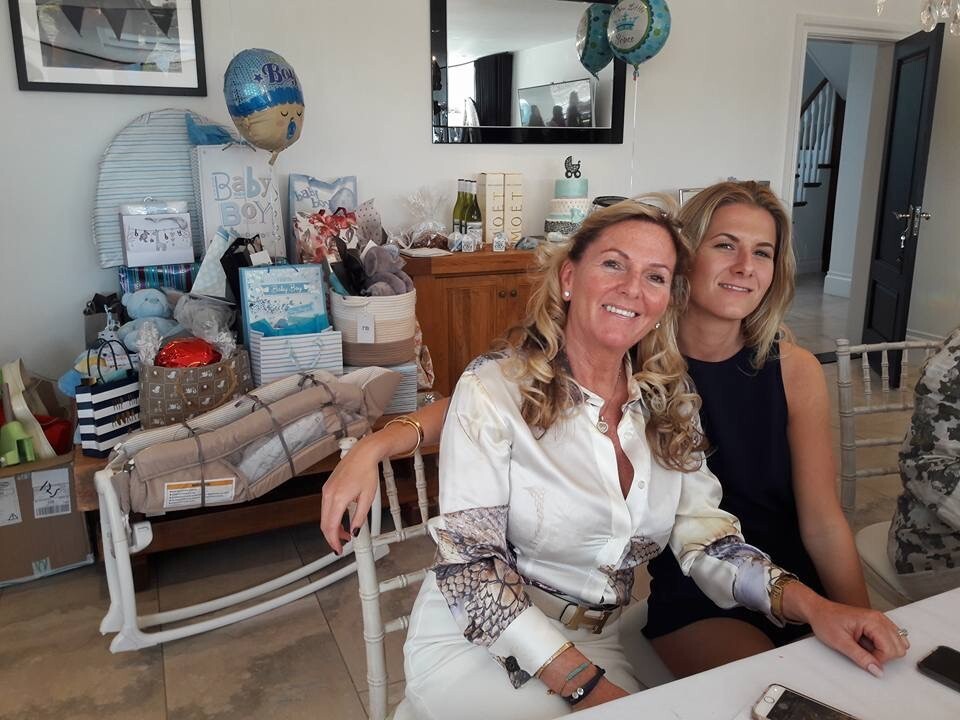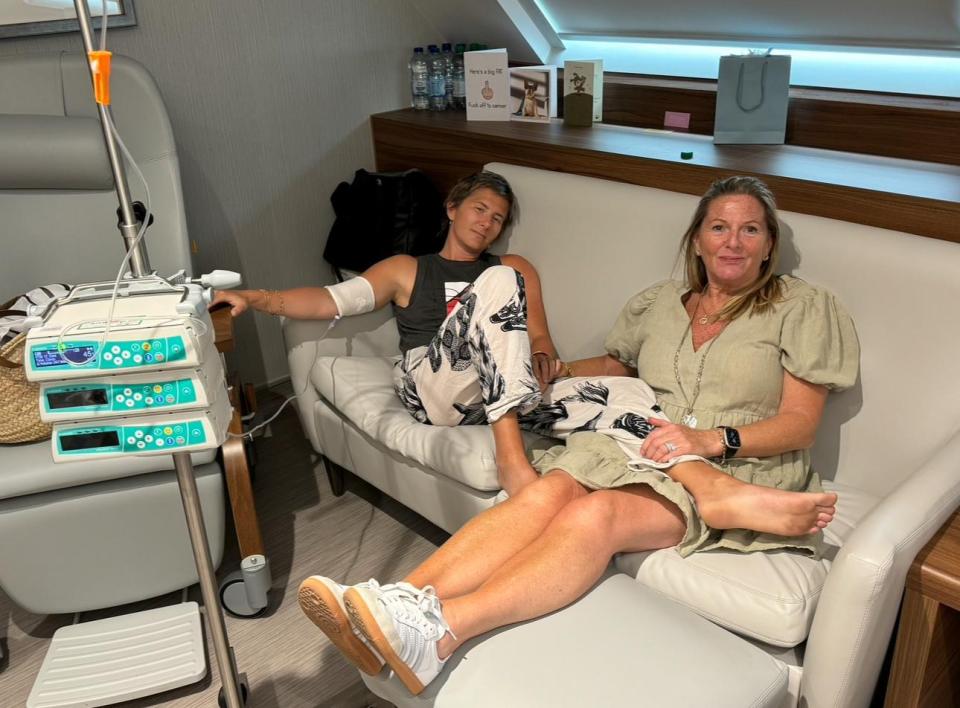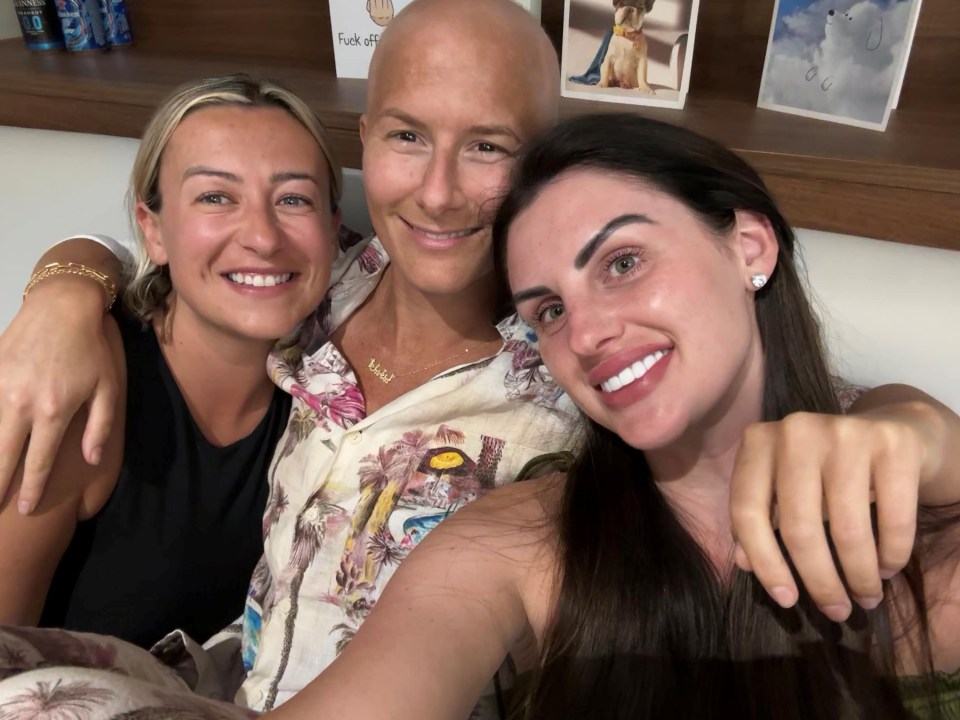OLIVIA Knowles was given months to live after her leukaemia was initially mistaken for long Covid.
“I just want my normal day back,” the 33-year-old from Blackpool, said.
She started experiencing headaches and tiredness in late 2023 and was told it was “very likely long Covid”.
But just days later, the former triathlete developed a toothache, which led to an emergency hospital visit.
Two days later, she was admitted to Blackpool A&E with extreme toothache and sepsis.
Soon after she was diagnosed with acute myeloid leukaemia (AML), an aggressive blood cancer.
“It was a total shock,” Olivia said.
“I’m not saying I was the healthiest person in the world, but I was quite healthy – I didn’t have a lifestyle that was indicative of cancer.”
Olivia began a regime of chemotherapy designed to “completely empty” her bone marrow to see whether the cancerous cells grew back.
This procedure stripped away her immune system, leaving her extremely vulnerable to infection and unable to leave hospital.
“I went to hospital on November 7 and I didn’t leave until Christmas Eve,” Olivia recalled.
Following two rounds of chemo with varying degrees of success, Olivia’s third treatment in April 2024 largely succeeded in eradicating her leukaemia.
But just before she was due to have a stem cell transplant to replace her bone marrow, a pre-surgery appointment was moved unexpectedly.
“I thought that seemed strange, so I went down to the hospital and asked to speak to my consultant,” she said.
“It became a very weird scenario in which he wouldn’t come on the phone to speak to my nurse specialist, or me.
“I ended up speaking to him the day after, and obviously I’d relapsed.”
With AML, Olivia explained: “Even if there’s a speck of it left, it just regrows.
“And what regrows is basically the resistant cells, the ones that have evaded and resisted the previous chemo.”
Olivia’s consultant at Blackpool Victoria Hospital gave her three options – try to get a transplant despite her relapse, join a clinical trial, or “do nothing”.
Olivia said a consultant offering a second opinion at another hospital asked her: “Have you ever thought about taking a flight?”
This confused her because AML patients are advised to avoid “anywhere where the air is recirculated”, such as on planes.
But “then the penny dropped, and I realised he’d suggested going to Dignitas (the Swiss assisted dying clinic)”.
In November 2024, after various unsuccessful trials, Olivia was given a novel Car-T treatment – immunotherapy which genetically modifies a patient’s T-cells to attack cancer.
‘Blindsided’
The treatment at King’s College Hospital in London was followed by a stem cell transplant.
“The initial bone marrow findings were excellent,” she said.
“There were no signs of disease. It was a really positive result at first.
“I was feeling probably the best I’d felt for quite some time.”
In March 2025, Olivia was readmitted with gut issues, a common side effect of stem cell transplants.
She said: “I’d been in for blood literally one week before. The blood work had been very good, no reason for concern.
“One week later, I showed active disease. My counts were off.”
Olivia said her consultant was “blindsided” by her relapse, because the transplant had gone so well.
“When I got the news, I wanted to go home,” she said.
“It was a bitter pill to swallow after being told there’s no disease.”
While home with her mum Susan and dad Stephen, Olivia decided “on a little bit of a whim” to walk a marathon around Fairhaven Lake to raise funds for the clinical research team at King’s.
‘I did this for the next 33-year-old’
She was forced to stop after 20 miles but still raised more than £25,000.
She said: “It went exactly how I expected it to go, because my legs have atrophied so much.”
She hopes the money will contribute to “solid advancements”, saying the team at King’s “are on the cusp of something excellent with their development of Car-T treatment for AML”.
“For them to have something that can help treat children, it gives you a bit more hope,” she said.
Olivia began a new chemo regime in late March, with the intention of joining another clinical trial.
Reflecting on her treatment, she said: “We did almost do it, but ‘almost’ doesn’t matter.
“I did this (walk) so one day the next 33-year-old, the next one-year-old, the next one-month-old, isn’t an ‘almost’.”
WHAT IS ACUTE MYELOID LEUKAEMIA?
ACUTE myeloid leukaemia is a type of blood cancer that affects the immune system’s white blood cells.
The causes of the disease are not well understood and it usually cannot be prevented. Previous chemotherapy, exposure to radiation or smoking could raise the risk.
It is a rare type of cancer and affects around 3,100 people each year in the UK, and 2,700 people die from it annually.
AML is an aggressive form of cancer and often needs urgent treatment with chemotherapy and possibly a bone marrow transplant.
Symptoms of the disease include:
- Paleness
- Concerning tiredness or weakness
- Often feeling breathless for no reason
- Getting regular infections
- Unexplained weight loss
- Unexplained bleeding and/or bruising
Source: NHS














